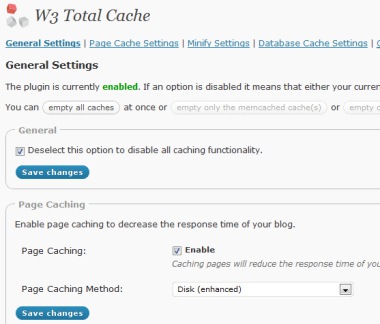Even the best developers run into problems with download speed. The following six tips will help you improve site speed and rank higher in search results:
- Minimize on-page components. Between flash, stylesheets, and scripts, multiple processes can occur behind the scenes that will significantly slow a page’s load time. If you combine style sheets or replace images with CSS, the HTTP requests that make on-page elements function won’t have an opportunity to slow down your site.
- Compress large pages. Over the past year, Google has made it abundantly clear that SEO best practices involve the use of long-form content, videos, and shareable media to reach more customers and rank higher in SERPs. Unfortunately, all this additional content can reduce load speed. Try to compress your larger pages so they take up less space and consume less bandwidth when they load.
 Use browser caching. Turning on browser caching will store necessary elements on a viewer’s hard drive, which results in a faster load time when the visitor returns. Many webmasters fail to use this tool, and that leads to slow load times — and higher levels of frustration — for visitors.
Use browser caching. Turning on browser caching will store necessary elements on a viewer’s hard drive, which results in a faster load time when the visitor returns. Many webmasters fail to use this tool, and that leads to slow load times — and higher levels of frustration — for visitors.- Optimize visual content. The growing emphasis on visual content might have misled some website owners. If customers enjoy images, video, and graphics, why not fill your site with them? Unfortunately, too many improperly formatted graphics can cause a traffic jam and sluggish load speeds. Take the time to optimize visual content by limiting size, reformatting images into JPEG, and eliminating BMPs, GIFs, and TIFFs, and viewers will love you.
- Eliminate unnecessary plugins. Particularly if you’re using WordPress, running multiple plugins contributes substantially to slower page load speeds. Though their convenience and ease of use make plugins an attractive option, using too many will cause your load speed to plummet and result in poor user experience. Remove any plugins you don’t absolutely need.
- Review your hosting plan. Sometimes, unreliable hosting providers can have a negative impact on your site speed. Most hosting companies deliver packages in a one-size-fits-all format, but the assumption that one type of hosting service will work best for all websites is totally untrue.
Even if you go through each step, you’ll need to come up with a way to monitor your site’s load speed on an ongoing basis. Because the team at Google truly does want to make the lives of webmasters easier, they designed PageSpeed Insights: a Chrome extension that empowers developers to track a site’s performance.
Source: http://www.searchenginejournal.com


